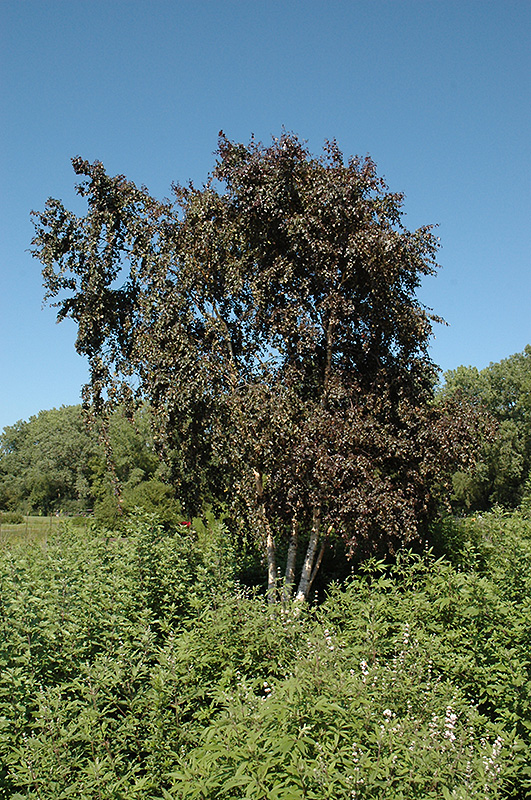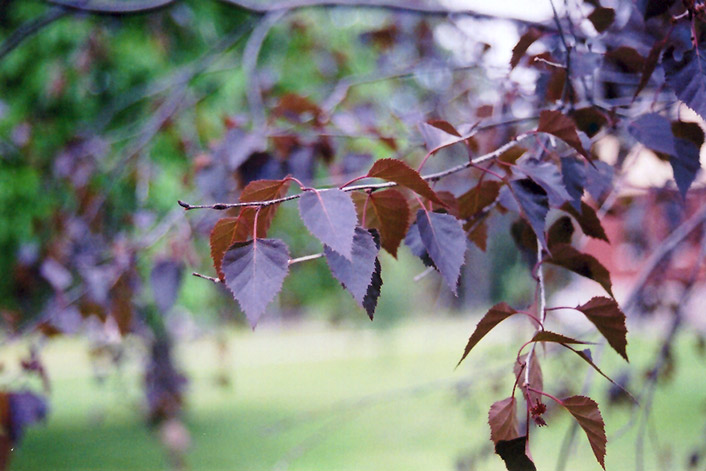Plantfinder
siteadmin2023-06-04T13:10:09-03:00
Height: 40 feet
Spread: 25 feet
Sunlight:
![]()
![]()
Hardiness Zone: 4a
Description:
An amazing hybrid of birch with deep purple leaves and the famous white bark; a spectacular accent tree with a loose, open habit and fine, slightly pendulous branchlets, use sparingly in the landscape to bring attention to it
Ornamental Features
Crimson Frost Birch has attractive deep purple deciduous foliage which emerges burgundy in spring on a tree with an oval habit of growth. The pointy leaves are highly ornamental and turn an outstanding burgundy in the fall. The peeling white bark is extremely showy and adds significant winter interest.
Landscape Attributes
Crimson Frost Birch is a deciduous tree with a shapely oval form. Its relatively fine texture sets it apart from other landscape plants with less refined foliage.
This is a relatively low maintenance tree, and should only be pruned in summer after the leaves have fully developed, as it may 'bleed' sap if pruned in late winter or early spring. It has no significant negative characteristics.
Crimson Frost Birch is recommended for the following landscape applications;
- Accent
- Shade
Planting & Growing
Crimson Frost Birch will grow to be about 40 feet tall at maturity, with a spread of 25 feet. It has a low canopy with a typical clearance of 3 feet from the ground, and should not be planted underneath power lines. It grows at a fast rate, and under ideal conditions can be expected to live for 40 years or more.
This tree does best in full sun to partial shade. It prefers to grow in average to moist conditions, and shouldn't be allowed to dry out. It is not particular as to soil type or pH. It is somewhat tolerant of urban pollution. Consider applying a thick mulch around the root zone in winter to protect it in exposed locations or colder microclimates. This particular variety is an interspecific hybrid.
A NetPS Plant Finder tool

